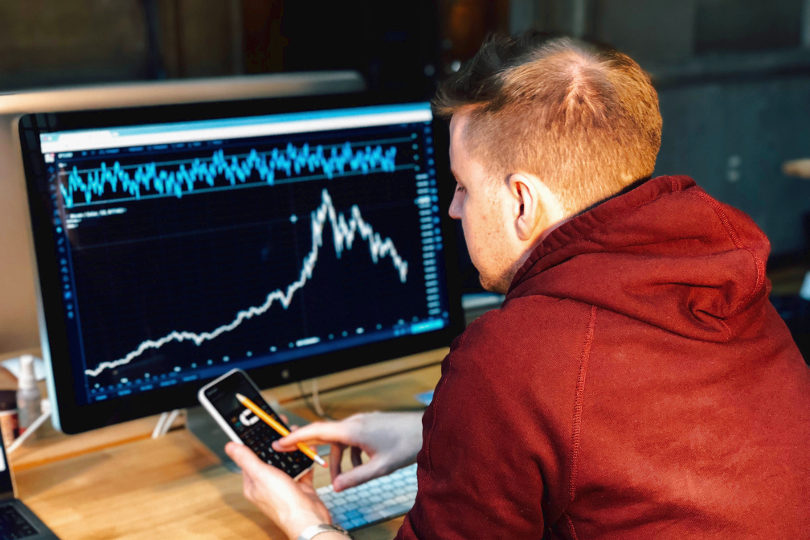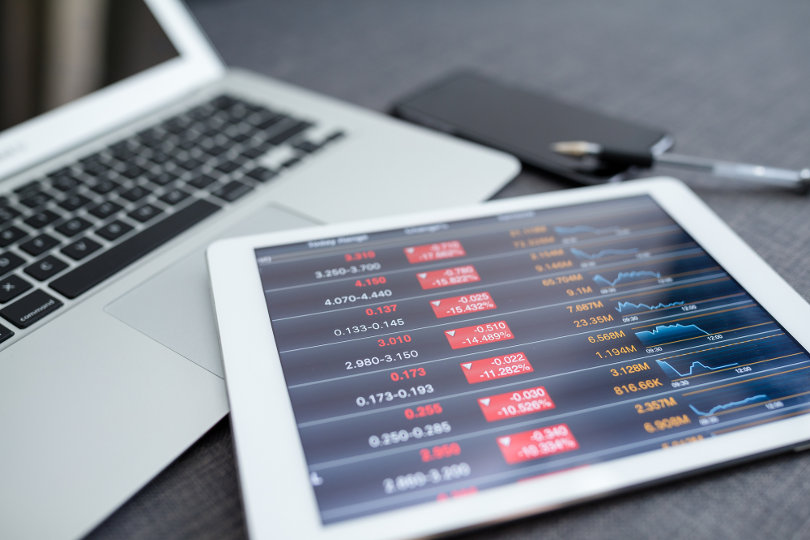If you’re interested in learning about trading forex and investing in the market, there are some key things you should know first.

That’s why we’ve put together this list of the top 5 things to know about forex trading. These are all important topics that will help you get the most out of your investing.
Let’s take a look now:
1. Choosing the Right Platform
There are many online forex brokers to choose from with various platforms available, so it’s important to find the best one for you.
For example, some brokers offer self-developed platforms and others also have the popular MT4 or MT5 platforms on offer. All platforms come with different tools and analysis features, that’s why it’s good to do your research on a broker before signing up.
Some platforms are also well-known for specialising in certain areas. For example two leading brokers that do this are eToro and Plus500. Both are leading brokers with millions of clients worldwide, but what’s the difference between eToro vs Plus500?
Well, eToro is famous for offering social trading and their platform comes with unique tools like the CopyTrader tool and social newsfeed. It’s perfect if you’re new to trading and want to learn by copying other professional traders.
Plus500 is well known for having a simple-to-use platform and a great trading app for smartphones. They also have many assets to trade in besides forex. Plus500 is a great option if you want a great platform to use that is easy to understand. It’s ideal for both beginners and experienced traders.
Most importantly both brokers are fully regulated and secure to trade with, which brings us to point number 2!

2. Regulation
When you have found a broker that you like, it’s important that you make sure that the broker holds regulation licences.
If they hold regulation licences it means that they have been authorised to operate by official regulation authorities. It also means that the broker must follow strict financial rules that are put in place to protect traders and broker recommendations, you can explore the best forex forums.
For example, one rule is that all brokers must segregate the funds in private trader’s accounts from the main company funds that run the business. So if something ever happened to the broker, you account wouldn’t be touched.
Regulation is important to making sure that you are trading securely and safely.
Unfortunately, there are many unregulated scam forex brokers out there who just want to rob you of your money. That’s why you must check that the broker is regulated before signing up so you can avoid these scam situations.
To check the regulation licences, the broker should have displayed in their ‘about’ section a list of their licences. Popular regulation authorities that you are likely to see listed include CySEC, the FCA (Financial Conduct Authority) and ASIC.
For example, both eToro and Plus500 hold regulation licences from CySEC and the FCA.
3. Demo Account
At number 3 in our list of the ‘5 things to know about forex trading’, is about using a demo account.
Most online brokers will offer their clients a chance to test their platform via a free demo version. The demo account will have nearly all the same features and layout of a real trading account. This is a great way to test the platform without investing money upfront.
If you decide that you want to move to a real trading account at anytime, you can easily do so by switching between the two. There’s normally a switch account button featured on the platform menu.
To practice trading, the demo account will come with a set amount of virtual funds. This normally ranges from $10,000 to $100,000, all good amounts to run test trades with.
With these virtual funds you can being trying out different trading strategies without the worry of risking real money. If you decide that trading is not for you or you don’t like the platform there is no obligation to carry on with the broker.
That’s why a demo account is a vital and free tool that everyone should use when starting forex trading.

4. Forex Education
Many people are put off from forex trading because they’re not sure what to do or how it works.
That’s why we want to point out that many brokers have free education tools available. This can include live webinars, video tutorial or topic guides that will cover a wide range of forex topics.
Each broker has a different forex education offering but it’s worth seeing what they have listed. Learning about forex using these tools will help you to feel more confident as a trader, so it’s worth giving them a try.
5. Personal Account Manager
The last thing we want to mention is a broker service that not a lot of people are aware of, and that is the assistance of a personal account manager.
A lot of forex brokers will provide you assistance with a personal account manager. They will be able to answer questions related to using the platform and can suggest trading strategies to new clients.
To get in touch with a personal account manager, they can normally be reached via LiveChat, phone or email. They’ll be happy to answer general trading questions.







